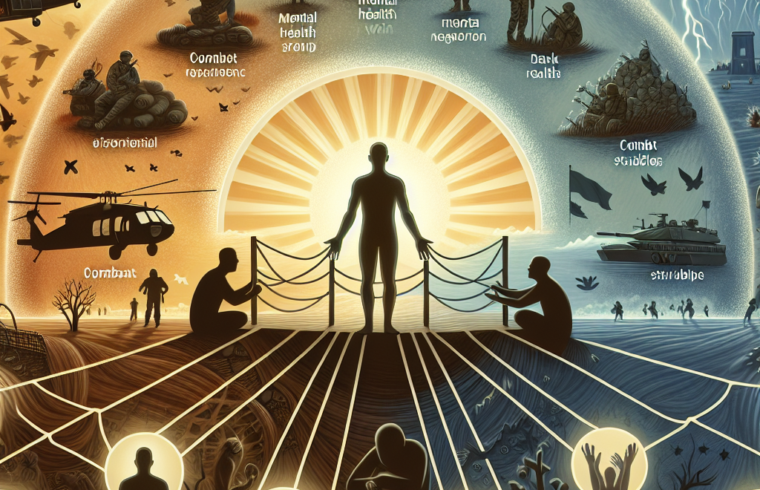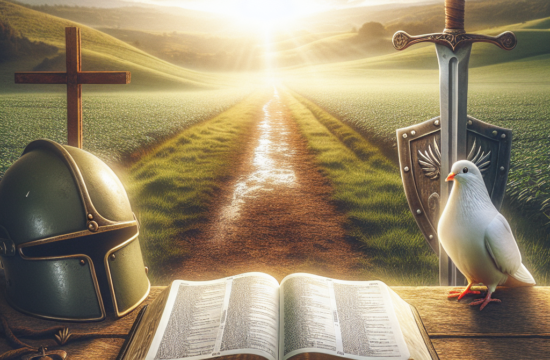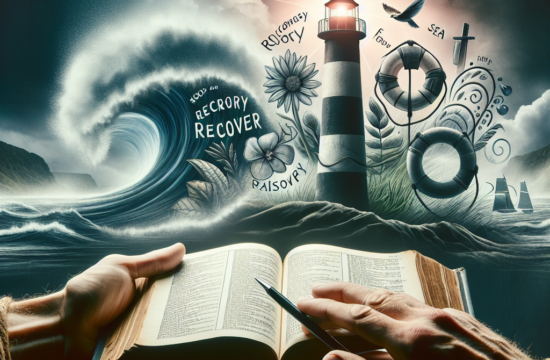==> Thank you for reading this post! Click Here If you are looking for support and Victory over PTSD.
The Crazy Connection Between Combat PTSD Support and Recovery
- Combat PTSD Support Groups
- The Role of Therapy in Recovery
- Community and Peer Support
- Strategies for Coping with PTSD
Combat PTSD Support Groups
Understanding the Importance of Support Groups
Support groups can be a lifeline for those struggling with combat PTSD. I remember my first time walking into a group; I felt nervous, but the moment I heard others share their stories, I realized I wasn’t alone. These gatherings create a safe space where veterans can discuss their experiences without judgment.
The sense of camaraderie in support groups is remarkable. Many participants feel like they’re part of a new family. This newfound connection helps combat the isolation that often comes with PTSD. Talking openly about emotions that are typically hidden can be a game changer.
Moreover, support groups often have a structured format, which can help you find your footing. Some groups focus on coping strategies, while others center around sharing personal stories. This variety means that there’s likely a group out there that fits your needs perfectly.
Benefits of Joining a Support Group
Joining a support group can lead to significant emotional breakthroughs. After I attended a few sessions, I started feeling less anxious and more understood. It’s like finding a tribe that gets what you’re going through. Sharing your struggles often helps lighten the load.
Additionally, members can share resources and tips for recovery. I learned about therapy techniques and coping strategies that I didn’t know existed. It’s amazing how much knowledge is collectively stored within these groups.
And let’s not overlook accountability. Being part of a group encourages you to commit to your healing journey. Knowing that others are counting on you can be a powerful motivator to seek improvement.
How to Find the Right Group
Finding a support group that resonates with you is crucial. Start by checking local community centers, hospitals, and online platforms. Make sure to look for groups specifically for combat veterans, as they can provide more tailored support.
Once you locate a few options, don’t hesitate to reach out to the facilitators. They can give you an idea of what to expect, and answering any questions can ease your nerves as well. Attend a couple of sessions if you can; it’s all about finding the right fit.
Remember, you’re not locked into one group. Feel free to explore different ones until you find the perfect match that makes you feel heard and supported.
The Role of Therapy in Recovery
Types of Therapy Available
When it comes to therapy, don’t feel overwhelmed by choices—there are several types that can help with PTSD. I’ve found cognitive-behavioral therapy (CBT) particularly helpful; it teaches you how to change negative thought patterns. It’s almost like a mental workout!
Exposure therapy might be another option. This can be intimidating, as it involves facing your fears gradually, but I know veterans who have found that it has helped them regain control over their anxiety. Talking to a licensed therapist about your options can set you on the right path.
Group therapy is also a great complement to individual therapy. It provides structured support and encourages peer connection, which we all know is so important for healing. It can be a lot easier to open up when you’re among people who truly understand your struggle.
Choosing the Right Therapist
Selecting a therapist who specializes in PTSD can make all the difference in your recovery journey. I would suggest finding someone who is not only experienced but also makes you feel comfortable. Trust me, you’ll want to share deeply personal things, and that can’t happen without a solid foundation of trust.
Look for therapists with a military background or experience working with veterans. They often possess an understanding of the unique challenges you face. If something doesn’t feel right during your first session, don’t hesitate to find someone else—it’s crucial to keep searching until you find the right fit.
Check reviews or ask for recommendations from your support group. Word of mouth is powerful! You want someone informed, compassionate, and approachable. Above all, your healing journey should feel safe.
Integrating Therapy into Daily Life
Therapy sessions can sometimes feel like a safe bubble, but integrating the lessons into your daily life is where real change happens. For me, it started with applying the coping strategies I learned as soon as I left the therapist’s office. It’s all about practice—like any new skill, consistency is vital.
I also found it helpful to journal about my feelings and experiences. This can help clarify your thoughts and process emotions that come up between sessions. Plus, it gives you a chance to reflect on your growth over time, which can be a significant morale booster!
Lastly, make therapy a part of your routine. Just like you’d schedule a dentist appointment, schedule your therapy and stick to it! The structure can profoundly enhance your recovery experience.
Community and Peer Support
The Impact of Community Connections
Belonging to a community, especially one that understands the weight of combat experience, can be incredibly powerful. Every time I engaged with my local veteran community, I felt a surge of positivity and purpose that’s hard to explain. You learn, support one another, and even have some fun along the way!
Activities like volunteer work can also deepen your sense of connection. Helping others might just be the therapy you didn’t know you needed. Experiencing shared purpose can make the world feel a little less heavy.
Get Started with Recovery! Visit us for more Information and Support
Moreover, community events often feature guest speakers, workshops, and resources that can aid in your recovery journey. Plus, it’s a great way to meet new folks who are navigating similar experiences, giving you even more avenues for support!
Building Peer Relationships
Peer relationships are essential in the recovery process. We’ve all felt isolated or misunderstood at some point, and having someone who’s walked a similar path can make a world of difference. I often connect with fellow veterans, sharing laughs and stories that only we can relate to.
Consider partnering up for activities or hobbies that interest you. It could be anything from hiking to gaming or joining a book club. Just engaging in casual meet-ups can break that barrier of loneliness and establish deeper ties with like-minded individuals.
Remember, peer support isn’t about fixed solutions; it’s about leaning on each other and providing solidarity. Having a buddy to text when the going gets tough can be a real anchor.
Resources for Community Support
Finding community resources can be as easy as a quick search online. Local veteran services often provide connections to social events, workshops, and support networks. I recommend checking out places like the VA or local veteran’s organizations; they often maintain lists of resources that can significantly aid your recovery process.
Social media groups can also be a great resource. They often provide spaces for veterans to connect and share experiences. Just make sure to poke around and find groups that have good vibes—you definitely want a supportive atmosphere!
Lastly, don’t hesitate to speak up. Let people know you’re looking for connections. Sometimes opportunities present themselves in unexpected places, but you have to be open to receiving them.
Strategies for Coping with PTSD
Daily Coping Techniques
Coping with PTSD effectively requires some daily strategies. It’s all about finding what works best for you. One thing that has been a lifesaver for me is grounding techniques—anything that helps bring you back to the present moment. Simple tricks like deep breathing, focusing on your five senses, or counting can pull you out of overwhelming spirals.
Journaling has also been a tool I swear by. Putting pen to paper can clarify your mind and provide an outlet for processing difficult emotions. I sometimes write a stream of consciousness; it doesn’t have to be pretty, just honest.
Additionally, engage in regular physical activity. Whether it’s a brisk walk, yoga, or hitting the gym, moving your body releases those feel-good hormones that can lighten your mood and help you manage stress more effectively.
Creating a Supportive Environment
Your environment plays a significant role in your coping strategy. Surround yourself with positivity—be it uplifting music, supportive friends, or inspiring quotes. I’ve found that even small changes in my space can make me feel more secure and focused. Create a cozy corner just for you, maybe with books, snacks, and comfy blankets!
Establishing a routine can also lend a sense of normalcy and structure. Daily rituals, no matter how minor, can provide a comforting anchor when things feel chaotic. I thrive on consistency and find that my mood drastically improves when I have a regular rhythm to my day.
Speaking of regularity, make sure to carve out “me time.” Prioritizing your own well-being is key. Whether it’s reading, meditating, or indulging in a hobby, it’s vital to nurture your passions and interests.
Leveraging Professional Support
Don’t underestimate the power of professionals in managing PTSD. Therapists, counselors, and psychiatrists can provide tailored strategies to help with your specific challenges. If medication is recommended, ensure you have open discussions about what may work for you—your comfort and safety should always come first.
We also shouldn’t overlook the value of holistic approaches like meditation and mindfulness. Practices such as these can seamlessly integrate into your daily routine and provide added layers of coping mechanisms. I’ve seen friends find immense relief and clarity through these practices.
Combining professional support with personal coping strategies allows for a comprehensive approach to healing. Don’t hesitate to keep trying different options until you find your sweet spot. Everyone’s journey is different, and there’s no one-size-fits-all solution.
Frequently Asked Questions
1. How can I find a supportive community for combat PTSD?
Start by checking local veteran organizations, community centers, or online platforms for support groups dedicated to combat veterans. Networking within your existing connections can lead to unexpected referrals.
2. What types of therapy are most effective for combat PTSD?
Cognitive-behavioral therapy (CBT), exposure therapy, and group therapy are commonly effective for PTSD. The key is finding a therapist experienced in these areas and one that makes you feel comfortable.
3. How can journaling help me cope with PTSD?
Journaling serves as a healthy outlet for expressing thoughts and emotions. It can provide clarity, serve as a means of reflection, and help track your journey, leading to greater self-awareness.
4. Is it normal to feel isolated when dealing with PTSD?
Absolutely. Many individuals dealing with PTSD experience feelings of isolation. Connecting with support groups and other veterans can help alleviate these feelings and foster a sense of belonging.










